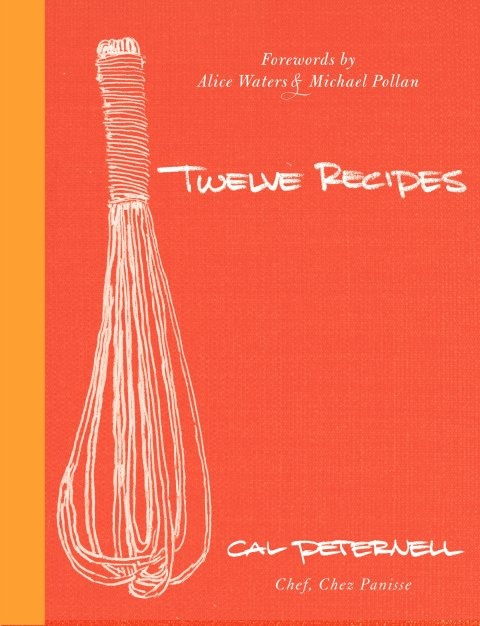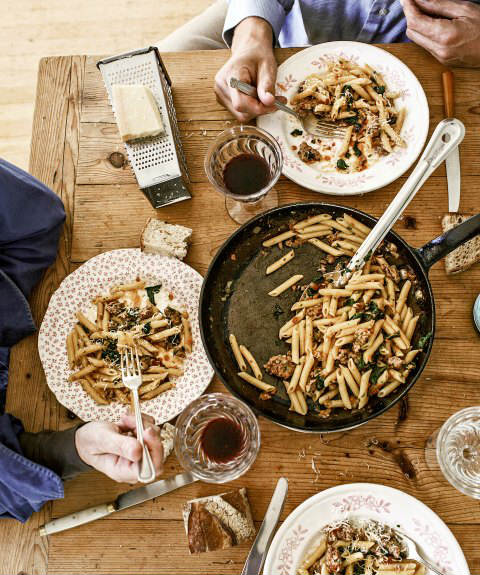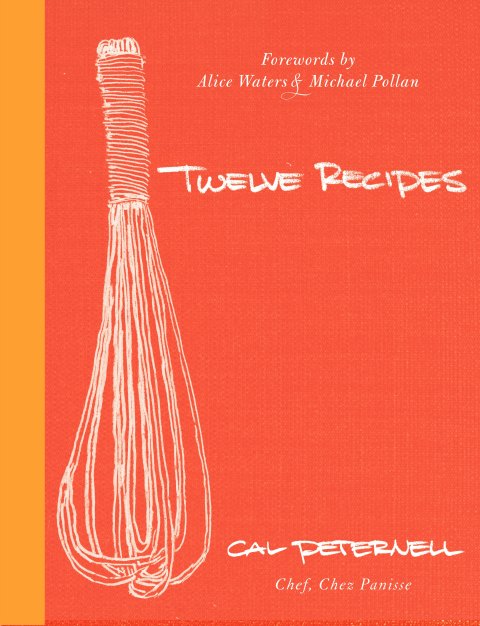Cook With Confidence: 'Twelve Recipes' Will Show You How
Home-cooking is having a bit of a Renaissance; we're making more time to cook and we're learning to make more foods from scratch. But, at the same time, we're learning that there's a lot we don't know how to do. Recipes and techniques that were second-nature to our grandparents and great-grandparents perplex us and many recipes add confusion and anxiety to the process of cooking.
Imagine, instead, walking into your kitchen, looking at the ingredients in your pantry, envisioning a dish, and having the confidence to make it without using a recipe. That's exactly the type of freedom Cal Peternell's cookbook, Twelve Recipes, is based upon. Sure, you'll need to work at it — you'll need to practice cooking and master a few core techniques— but in doing so you'll gain the confidence you need to cook far more than 12 recipes.
The book (which includes chapters like Toast, Eggs, Beans, Roasted Chicken, and Grilling) shares not only core cooking techniques but also related recipes and variations which gives readers and cooks a much broader understanding of how to cook; if you can make toast, you can make croutons and if you can make croutons you can make homemade stuffing for a roasted chicken. Twelve recipes is about cooking with intuition.
Cookbook author and legendary Chez Panisse chef Cal Peternell was kind enough to talk with us about the concept of intuitive cooking and about his new book, Twelve Recipes:
Can you talk a little bit about the concept of intuitive cooking? How can home cooks modify a handful of base recipes to fit their individual needs?
If you look at the book you'll come to the happy discovery that there are more than 12 recipes in it. The idea is really that lots of professional chefs have a core group of techniques that they use to cook a lot of different things. [pullquote:left]Let's say they were going to braise duck legs; they know the basic idea of how to do it (add some aromatic vegetables, brown the duck legs, and then cook them to tenderness in a liquid) and they have a mastery of that kind of technique, but the final dish will depend upon things like their mood, the ingredients that are in season, or an inspiration from a cookbook they've just read. I'm trying to pass that kind of ability on to my readers so that they feel really solid in the idea of how to do a basic technique and how to take that technique in any desired direction. Their variation of a particular dish can be based on one of the things I just mentioned or it could be tailored to the amount of time they have on hand, their budget, the equipment in their kitchen; any number of things can have an influence.
Why is this concept so important for a home cook?
It gives you confidence, and with that confidence comes a certain freedom. If you want to use up what you have on hand and you don't want to put much effort into a dish, that's perfect. But, if it's the weekend and you want to fancy it up a bit and spend more time in the kitchen, you can do that, too. You don't need to be afraid of any recipe.
(Credit: 'Twelve Recipes'/Ed Anderson)
What about rules; which ones can you (and should you) break?
You should break all the rules except for two. Those two are: don't stop tasting the ingredients you're cooking with, and don't stop paying attention to what you're doing.
If your recipe calls for an ingredient and you're going to make a substitution (or leave it) out that's great, go for it; but notice the result and think about whether or not you're happy with it. If your recipe is too rich, for example, maybe you don't use butter next time.
What are your top three tips for someone who may not feel confident cooking like this?
One thing that I recommend is that you find a recipe you really like and make it your thing for a while. If you're going to roast a chicken with rosemary, for example, get it down, keep making it until you've totally mastered it. That's a great way to gain the confidence you need to branch out and cook something else or make modifications.
Secondly, if you're lucky enough to have a friend who is a good cook, go to their house and cook alongside them (or stand in their kitchen while they cook). I'm not a big fan of cooking shows (because many of them don't actually teach you to cook and they can make cooking feel impossible) but some of the older shows can still be helpful. Mario Batali used to have a show, Molto Mario, which you can still find on YouTube, where a few guests would sit at the bar in his kitchen and watch him cook. It was super helpful. So, if you don't have a friend you can watch, make friends with Mario.
The third thing I'd say (and this is something I tell even the professional cooks I work with) is that, if you're going to cook from a recipe, read it carefully. Try to visualize how the recipe is going to go; think the steps through. What can you do ahead? What should you do first? Next? What flavors do you want to get from the dish? Make a mind map of the recipe.
(Credit: 'Twelve Recipes')
Can you tell us a little bit more about your book, Twelve Recipes?
This was actually a family project; I wrote the book but my wife and three sons helped with the art and illustrations. We did the photographs for the book in our home using mostly our own cookware and tableware. It's not all perfect but it evokes a sort of true family-like memoir of cooking and eating. I think that's really unique.
For more information about chef Cal Peternell, or to purchase a copy of his book, 'Twelve Recipes,' visit his website.
Kristie Collado is The Daily Meal's Cook Editor. Follow her on Twitter @KColladoCook.


